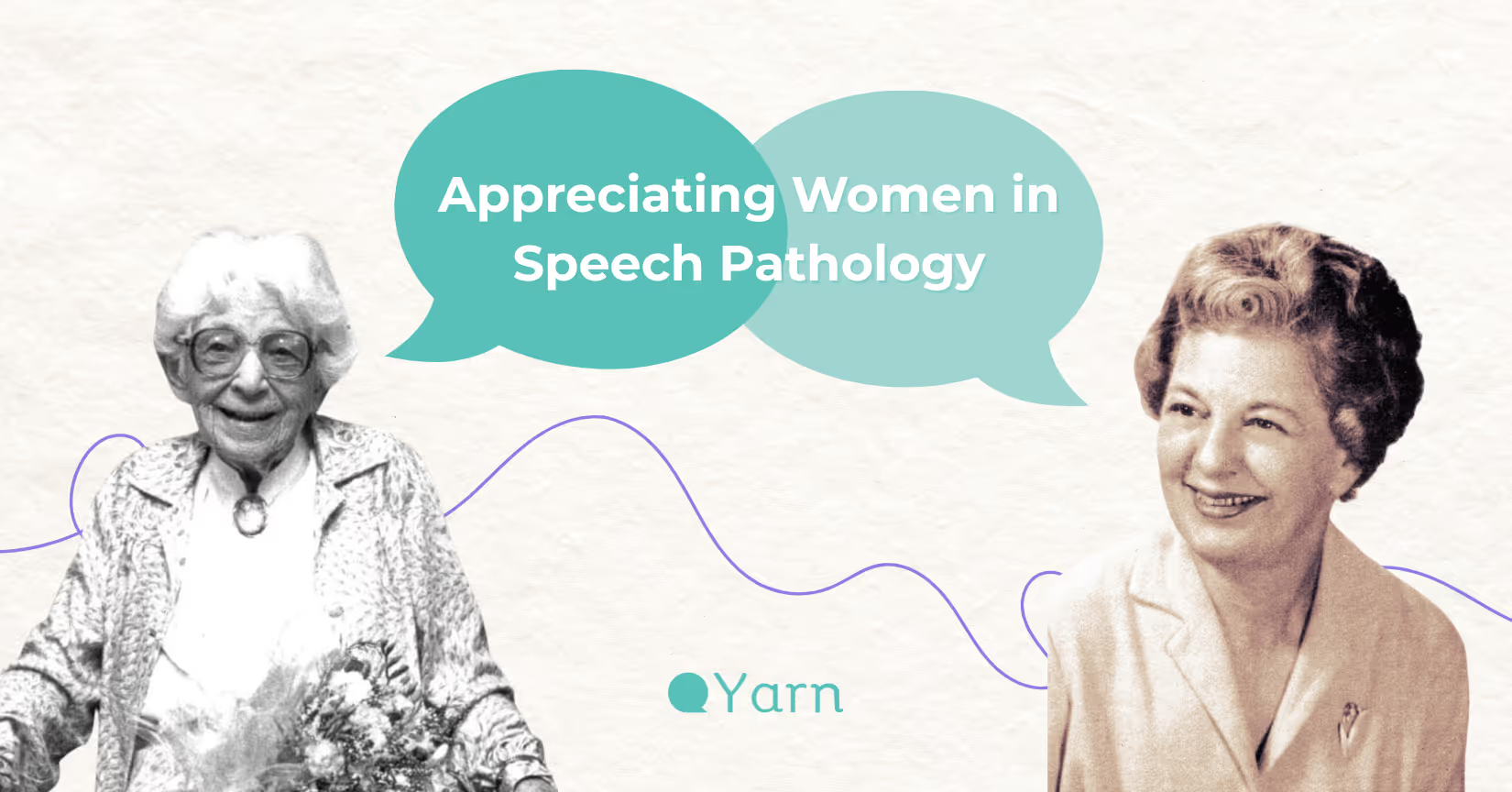


At Yarn, we believe it's always important to recognise women's incredible contributions to speech pathology. From intelligent researchers to compassionate clinicians, women have made this profession into what it is today.
The field of speech pathology owes much to its female pioneers. Elinor Wray stands out as one of these remarkable women. In 1931, with Sir Robert Wade's help, she established Australia's first speech therapy clinic at the Royal Alexandra Hospital for Children. By 1939 she had established a flourishing private practice in Macquarie Street and became the director of the Training School for Speech Therapists. Wray was a founding member (1944) of the Australian Association of Speech Therapists and a founding fellow (1949) of the Australian College of Speech Therapists.She opened clinics for adult patients at the Dental Hospital and Sydney Hospital, and in 1958, she convened the first meeting of the Lost Chord Club for laryngectomy patients. On her retirement in 1966 she was appointed an honorary speech therapy consultant to Sydney Hospital.
In America, Catherine was the first woman to graduate in speech pathology from the University of Iowa in the early 1930s. During her junior year, she enrolled in a speech pathology class, a new field of study at the university that seemed to fulfil her interest in psychiatry and speech. She observed others doing therapy here and worked with several clients with articulation problems and foreign accents. After graduating, she applied for a job at the University of Minnesota, where a new speech clinic had recently been started. Her husband, Dr. Charles Van Riper, stated, "I could not have pioneered the field of speech pathology without her." Known as "the Earth Mother" for her caring nature, Katy laid the groundwork for what would become a profession predominantly led by compassionate women.
Speech pathology has evolved into a profession predominantly led by women. Current statistics show:
This female dominance highlights wider historical trends where nurturing roles have been "feminised," yet speech pathology remains notable for preserving both its prestige and pay despite this shift.
The future of speech-language pathology looks bright, with expanding roles in areas like technological intervention, telehealth, and interdisciplinary collaboration. The characteristics that have made women successful in this field—empathy, creativity, persistence, and advocacy—will continue to drive innovation and excellence in service.
To the women of speech pathology, past and present: thank you for your dedication to helping others find their voice. As a largely female team led by a female founder, Yarn is dedicated to gender equality and providing equal opportunities for everyone.